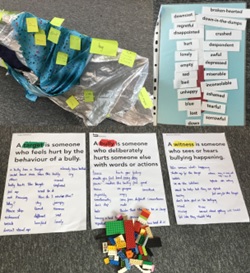PSHE & Wellbeing
At Alma Primary, we are becoming powerful with PSHE!
At Alma Primary, we aim to promote personal wellbeing and development through a comprehensively taught programme of Personal, Social, Health and Economic Education (PSHE) that gives children the knowledge, understanding, attitudes and practical skills to live healthy, safe, productive and fulfilled lives, both now and in the future. In line with Government guidance, our PSHE & Wellbeing curriculum includes Relationships and Sex Education (RSE).
The PSHE & Wellbeing curriculum focuses on healthy relationships and keeping children safe in the modern world. It covers a wide range of topics relating to physical and mental health, wellbeing, safeguarding and healthy relationships. Learning about the emotional, social and physical aspects of growing up will give children and young people the information, skills and positive values to have safe, fulfilling relationships and will help them take responsibility for their own wellbeing.
As with all statutory subjects, there is no right to withdraw from Relationships Education or Health Education or any content from the science curriculum. For example, this means that pupils cannot be withdrawn from lessons on the changing adolescent body. Parents/carers do have the right to request that their child be withdrawn from some or all of the Sex Education delivered in Year 6 only (conception and birth) following discussions with the Headteacher.
We use: the Health Education Partnership (HEP) framework to deliver learning focusing on physical and mental health and living in the wider world, Christopher Winter Project for Relationships and Sex Education and the Heads Up Emotional Literacy programme to support with developing a shared emotional language in the classroom.
In addition to our existing provision, we are incorporating the ‘Expect Respect’ prevention toolkit – an initiative run by Women’s Aid in partnership with Yves Saint Laurent Beauty, to educate children and young people through the campaign ‘Abuse is Not Love.’ The toolkit enables staff to lead age-appropriate sessions around healthy relationships, hold conversations about the root causes of violence and educate young people on gender-based violence.

